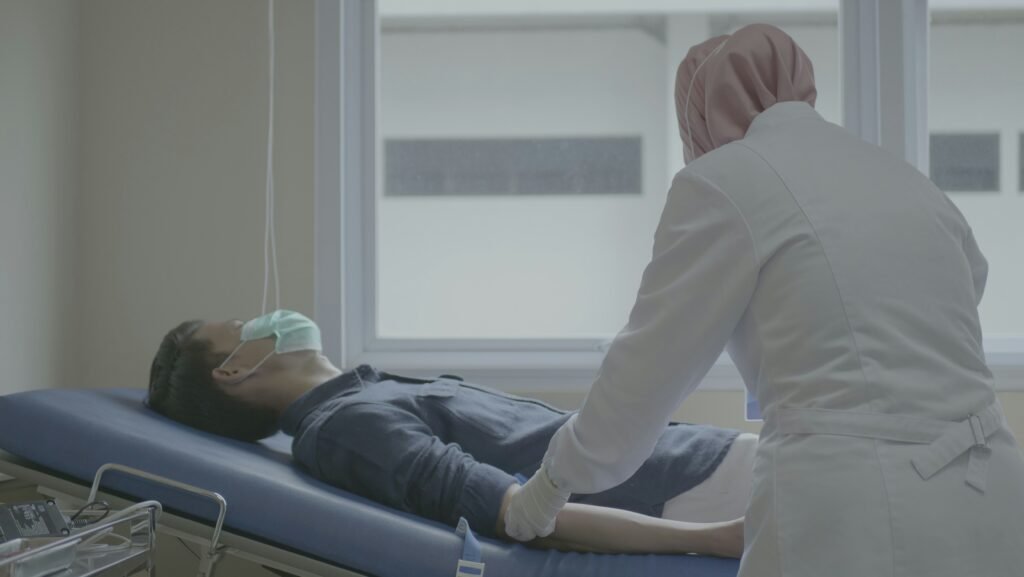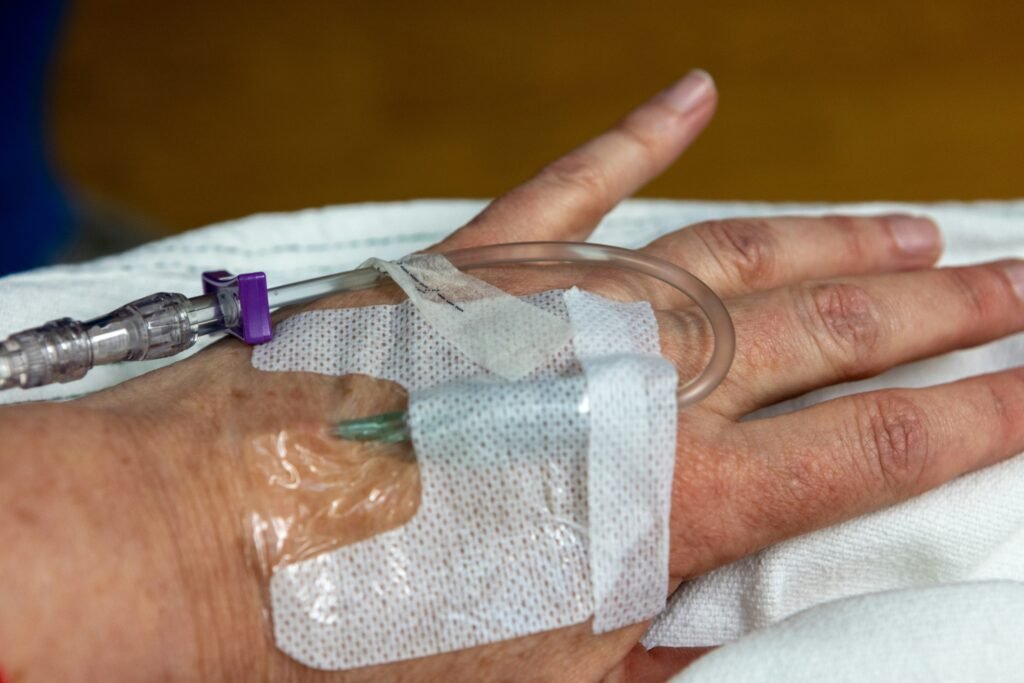Have you ever wondered why cold water has such a remarkable effect on your body, especially when it comes to healing and recovery? Many people turn to cold water therapies for various reasons, whether it’s for sports recovery, health benefits, or even mental clarity. Let’s break down the intriguing relationship between cold water and cellular repair, discovering how it can potentially elevate your well-being.

Understanding Cellular Repair
Cellular repair is the body’s fascinating way of mending its own wounds and maintaining health. Your cells are constantly working to regenerate and fix themselves, and certain conditions can enhance this natural process. Imagine your body as a bustling city, with cells acting as tiny workers who labor tirelessly to keep everything running smoothly.
When these cellular workers experience stress or injury, they pause briefly to assess the situation, then initiate repair processes that can be vital for your overall health. Factors like nutrition, exercise, sleep, and even temperature play significant roles in how efficiently your cells can do their job. So, how does cold water fit into this intricate picture?
The Science of Hydration
To understand how cold water influences cellular repair, it’s essential first to consider hydration. Your body consists of about 60% water, and it relies on this essential fluid for nearly every bodily function. Hydration impacts everything from digestion and circulation to cellular repair.
When you immerse yourself in cold water, your entire body undergoes physiological changes. The cold stimulates blood circulation, increases metabolic rate, and may even enhance the transport of oxygen and nutrients to your cells. All these factors can significantly impact your cellular repair processes.
How Hydration Affects Cellular Function
| Aspect | Effect of Hydration |
|---|---|
| Cellular Repair | Efficient repair process due to nutrient transport |
| Energy Levels | Increased energy due to optimized metabolic rate |
| Detoxification | Enhanced removal of waste from cells |
You might be surprised to learn that even slight dehydration can hinder your cells’ ability to repair themselves. Maintaining optimal hydration levels, particularly with cold water, might just be your secret weapon for better cellular health.
The Mechanisms Behind Cold Water Therapy
So, what exactly happens in your body when you expose it to cold water? First, let’s talk about thermoregulation. When you’re submerged in cold water, your body has to work much harder to maintain its core temperature. This process triggers a cascade of reactions, some of which are beneficial for cell repair.
Cold Water Immersion
cold water immersion is a form of hydrotherapy that can entail anything from a chilly shower to an icy plunge in a pool or a body of water. The temperature of the water plays a significant role in how effective it can be for various therapeutic benefits.
When you first enter that cold water, your pores tighten, and blood vessels constrict, a physiological response known as vasoconstriction. Your body starts to redirect blood flow toward your vital organs. Once you exit the cold environment, this vasodilation (the widening of blood vessels) occurs, enhancing blood flow and delivering much-needed oxygen and nutrients to your cells.
Benefits of Cold Water Immersion
When it comes to recovery and repair, cold water immersion could offer multiple benefits, from reducing inflammation to enhancing muscle recovery post-exercise.
Benefits Breakdown
| Benefit | Explanation |
|---|---|
| Reduced Inflammation | Constricts blood vessels to minimize swelling |
| Enhanced Circulation | Improves blood flow post-immersion |
| Pain Relief | Natural analgesic effect through cold exposure |
| Mental Clarity | Boosts endorphins, improving mood and focus |
Cold water therapy isn’t just about physical benefits. The invigorating jolt of cold also has effects on your mental state, encouraging increased alertness and improved mood. All of these factors combined create an environment where cellular repair can thrive.
Cold Stress and Hormesis
Now, let’s get into the concept of hormesis – a fancy word for the beneficial effects of low doses of stress. Cold exposure is one such form of mild stress that can usher in a series of adaptations in your body, promoting not just resilience but also cellular repair.
How Hormesis Works
When you expose yourself to cold temperatures, your body activates protective cellular mechanisms. In this state, cells produce heat shock proteins (HSPs), which play crucial roles in repairing damaged proteins and even preventing cell death. Think of these proteins as your emergency rescue team, standing ready to jump into action whenever your cells are in distress.
Cold Exposure and Heat Shock Proteins
| Cold Exposure | Effect on Heat Shock Proteins |
|---|---|
| Short Bursts | Stimulates rapid production of HSPs |
| Prolonged Exposure | May lead to diminishing returns; moderation needed |
Getting into the cold can feel intense, but, surprisingly, your body can adapt over time. Regular cold exposure can lead to more efficient cellular repair mechanisms, which might lead to increased physical resilience, reduced inflammation, and enhanced overall health.
Cold Water and Metabolism
Another fascinating aspect to consider is how cold water influences your metabolism. When you subject your body to cold exposure, it goes into overdrive to generate heat, thus burning calories in the process.
The Role of Brown Fat
Did you know that you have brown adipose tissue (or brown fat) that activates during cold exposure? Unlike white fat, which stores energy, brown fat generates heat. When you immerse yourself in cold water regularly, your body can increase the amount of brown fat it has, leading to a higher metabolic rate and increased calorie burn.
Metabolic Activation through Cold Exposure
| Effect | Mechanism |
|---|---|
| Increased Caloric Burn | Activation of brown fat for heat production |
| Improved Insulin Sensitivity | Enhances glucose metabolism |
The interconnectedness between metabolism and cellular repair cannot be ignored. A faster metabolism enables your body to deliver nutrients more effectively to cells needing repair, ultimately supporting your recovery process.

Mental Health Benefits of Cold Water
Let’s not underestimate the mental health aspect of cold water exposure. Immersion in cold water has been linked to improved mood and reduced symptoms of anxiety and depression.
The Neurochemical Response
When you expose your body to cold water, your brain releases a flood of neurotransmitters like norepinephrine and dopamine. These chemicals play vital roles in mood regulation and can create a profound sense of well-being.
Emotional and Cognitive Effects
| Effect | Explanation |
|---|---|
| Enhanced Mood | Release of endorphins improves emotional state |
| Increased Focus | Neurotransmitter release sharpens cognitive functions |
This newfound clarity and positivity can create a robust emotional framework that might further assist in cellular repair. When you feel good mentally, it can have cascading effects on your physical health.
Cold Water Therapy in Practice
So, how can you integrate cold water therapy into your routine without feeling like you’re taking a polar plunge every day? Here are a few practical suggestions:
Chill with Showers
One of the simplest ways to start reaping the benefits of cold water therapy is by ending your showers with cold water. Just the last 30 seconds can be transformative for your cells.
Ice Baths
If you’re feeling brave, consider taking an ice bath. Start with a comfortable temperature and gradually lower it. Ideal time ranges from 10 to 20 minutes. Be sure to listen to your body.
Cold Plunges
Cold plunge pools are all the rage and for good reason. Spending five to ten minutes in a cold plunge can enhance recovery, especially after a workout.

Tips for Safe Cold Water Exposure
While cold water exposure has many benefits, it’s important to practice safely. Here are some tips to guide you through your chilly endeavors:
Avoid Prolonged Exposure
Make sure not to stay in cold water for too long; your body temperature needs to be monitored closely. Aim for brief but effective sessions.
Listen to Your Body
Everyone’s tolerance for cold is different. Pay attention to your body’s signals and don’t push yourself too hard too quickly.
Maintain Warmth After Exposure
Once you’re done with cold exposure, be sure to warm up your body. This not only prevents shock but also helps your body transition back to a normal state.
Conclusion
The link between cold water and cellular repair is an area filled with intrigue and endless possibilities. You’ve seen how hydration, cold exposure, metabolism, mental health, and cellular resilience are interconnected. It’s clear that incorporating cold water therapy can lay down important foundations for your health, ultimately aiding in cellular repair.
Understanding the nuances of how cold water affects your body may motivate you to step outside your comfort zone and give it a try. Whether you’re looking to enhance athletic performance, improve your mood, or bolster your cellular mechanisms, the cold holds significant healing power. Incorporating this practice might just turn out to be more than a passing trend; it could be a transformative component of your life. So, why not take the plunge?


